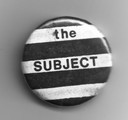Defining Clinical Depression / Betydelsen av klinisk depression.
There is research suggesting that a small portion (5-10%) of people out there are eternally happy and optimistic (like my wife Charlotte). Nearly everyone else (70-80%) gets depressed from time to time. It is normal and non-pathologic to get depressed or down in this way. I think there is a lot of stigma about "depression" because people get their personal feeling of being bit down confused with other more severe forms of clinical depressed. This is why those who suffer real clinical depression (10-15% of population) hear statements such as "get out of it" , "think positive", etc. etc. I Listen to Dr. Phil sometimes and hear him spewing out any number of such garbage.
There are many forms of depression and most have been defined clinically. It is important to understand the type of depression one suffers because this can greatly effect the determination of suitable treatment options and the progonosis of the depressive problem. For example, here are some clinical entities:
Adjustment disorder with depressed mood
Dysthymia
Substance induced mood disorder (alcohol and some other drugs can cause long term depression)
Bipolar depression
Major Depressive Disorder (MDD)
Major Depressive Disorder with psychotic features
Melancholic Depression
Atypical Depression
Depression not otherwise specified
As you can imagine it is not too helpful for someone with adjustment disorder (mild) try to compare or give advice on their feelings about depression to someone who suffers Melancholic Depression (a more severe form). It is similar to me having tension headaches and telling a friend with severe migraines that they just need to rinse their face with cold water and get a face massage.
Major depression generally evolves over weeks. With significantly depressed mood other biochemical changes may take place. Appetite, energy level, concentration, attention, sleep may all change as a result of depression. These types of changes is what we mean by "clinical depression" or Major Depressive Disorder (MDD).
Major Depressive Disorder is defined as a change of at least 5 out of 9 common symptoms lasting longer than 2 weeks with depressed or irritable mood. Symptoms include:
Mood (depressed or irritable)
Sleep (classically decreased with early morning wakening)
Appetite
Decrease interests
Guilty or feelings of worthlessness
Decreased energy
Decreased concentration
Psychomotor retardation or agitation
Suicidal thoughts or apathy.
*we have had many questions/comments on depression, I hope to respond to some of them tomorrow.
Godnatt for now .....Dr. Lacy
There are many forms of depression and most have been defined clinically. It is important to understand the type of depression one suffers because this can greatly effect the determination of suitable treatment options and the progonosis of the depressive problem. For example, here are some clinical entities:
Adjustment disorder with depressed mood
Dysthymia
Substance induced mood disorder (alcohol and some other drugs can cause long term depression)
Bipolar depression
Major Depressive Disorder (MDD)
Major Depressive Disorder with psychotic features
Melancholic Depression
Atypical Depression
Depression not otherwise specified
As you can imagine it is not too helpful for someone with adjustment disorder (mild) try to compare or give advice on their feelings about depression to someone who suffers Melancholic Depression (a more severe form). It is similar to me having tension headaches and telling a friend with severe migraines that they just need to rinse their face with cold water and get a face massage.
Major depression generally evolves over weeks. With significantly depressed mood other biochemical changes may take place. Appetite, energy level, concentration, attention, sleep may all change as a result of depression. These types of changes is what we mean by "clinical depression" or Major Depressive Disorder (MDD).
Major Depressive Disorder is defined as a change of at least 5 out of 9 common symptoms lasting longer than 2 weeks with depressed or irritable mood. Symptoms include:
Mood (depressed or irritable)
Sleep (classically decreased with early morning wakening)
Appetite
Decrease interests
Guilty or feelings of worthlessness
Decreased energy
Decreased concentration
Psychomotor retardation or agitation
Suicidal thoughts or apathy.
*we have had many questions/comments on depression, I hope to respond to some of them tomorrow.
Godnatt for now .....Dr. Lacy
Veckans ämne: Depression
Vi har fått in många frågor ang depression, nedstämdhet & ångest. Inte konstigt då depressionsjukdomen idag är en av våra allra största folksjukdomar. Vi kommer därfor att diskutera depression den här veckan.
Att då och då känna sig ledsen, nedstämd, eller lite deppig är något som händer oss alla då tillvaron blir besvärlig, vilket är helt naturligt och har ingenting med sjukdom att göra. Våra känslor kommer oftast till ro efter en tid, kanske med hjälp och stöd av någon närstående klok person.
Ibland händer det emellertid att vi blir ledsna, deprimerade även när vi tycker att det inte finns någon tydlig orsak till detta. Vi har svårt att få saker och ting uträttade, ingenting är längre roligt, ingenting ger oss längre någon glädje, vi duger inte mycket till och framtiden ter sig mörk. Livsglädjen och vitaliteten försvinner. Nedstämdheten är både djupare och längre än vanlig vardagsdeppighet.

Depressioner medför ett stort lidande för den som drabbas. Utan behandling kan förloppet bli långvarigt. Trots att depressioner kan bli både djupa och långvariga, är behandlingsmöjligheterna goda. Det finns både psykoterapeutiska metoder (kognitiv terapi/KBT) och läkemedel som har bra effekt vid depressionstillstånd.
Vi hoppas på frågor och feedback från er. Om du har en ide till ett ämne, lämna gärna en kommentar och vi kommer göra vårt bästa för att informera om det som ni läsare tycker är intressant.


